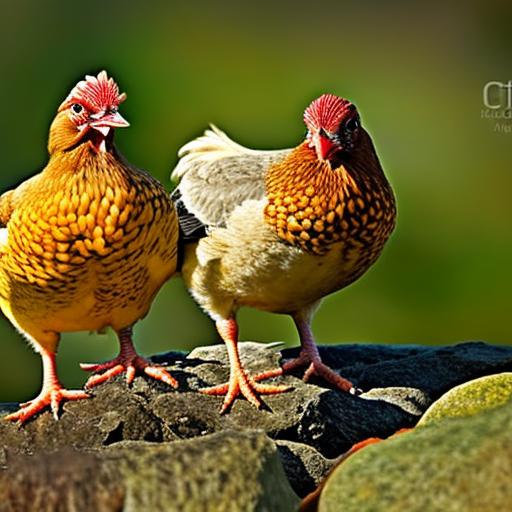Keeping chickens as pets has become increasingly popular in recent years. Many people are drawn to the idea of having fresh eggs every day, as well as the benefits of natural pest control and fertilizer for their gardens. In this article, we will explore the various aspects of keeping chickens as pets, including the benefits, costs, space requirements, choosing the right breed, feeding and watering, housing, health considerations, social needs, legal considerations, and tips for success.
Key Takeaways
- Keeping chickens can provide fresh eggs, natural pest control, and fertilizer for your garden.
- The cost of keeping chickens can vary depending on factors such as feed, housing, and medical care.
- Two chickens require at least 10 square feet of outdoor space and 4 square feet of indoor space.
- Consider breeds that are good for egg-laying and are suitable for your climate.
- Chickens need access to clean water and a balanced diet that includes protein, grains, and vegetables.
The Benefits of Keeping Chickens
One of the main benefits of keeping chickens is having a constant supply of fresh eggs. Not only are these eggs delicious and nutritious, but they also have a richer flavor and brighter yolks compared to store-bought eggs. Additionally, raising your own chickens allows you to have control over their diet and living conditions, ensuring that you are getting the highest quality eggs possible.
Another benefit of keeping chickens is their natural pest control abilities. Chickens love to eat insects and other pests, such as slugs and snails. By allowing your chickens to roam freely in your yard or garden, you can reduce the population of these pests without the need for harmful chemicals.
Chickens also provide excellent fertilizer for your garden. Their droppings are rich in nitrogen, phosphorus, and potassium, which are essential nutrients for plant growth. By composting chicken manure and using it in your garden, you can improve soil fertility and promote healthy plant growth.
The Cost of Keeping Chickens
While there are many benefits to keeping chickens, it is important to consider the costs involved. The initial setup can be quite expensive, as you will need to purchase a coop, feeders, waterers, bedding material, and other supplies. The cost of a coop can vary depending on its size and quality, but you can expect to spend several hundred dollars.
In addition to the initial setup costs, there are ongoing expenses to consider. Chickens require feed, which can add up over time. You will also need to provide fresh water daily and replace bedding material regularly. It is also important to budget for potential vet bills, as chickens can sometimes get sick or injured.
The Space Requirements for Two Chickens
When it comes to space requirements, it is important to provide your chickens with enough room to live comfortably. For two chickens, a coop size of at least 4 square feet per bird is recommended. This will give them enough space to move around and roost comfortably at night.
In addition to the coop, chickens also need access to an outdoor run where they can stretch their legs and forage for food. The outdoor run should be at least 10 square feet per bird to ensure they have enough space to exercise and explore.
Choosing the Right Breed for Two Chickens
When choosing the right breed for your backyard flock, it is important to consider their temperament, egg-laying abilities, and suitability for your climate. Some breeds are more docile and friendly, while others are more flighty and independent. If you have children or want chickens that are easy to handle, consider breeds such as the Rhode Island Red or the Sussex.
If you are primarily interested in egg production, breeds such as the Leghorn or the Australorp are known for their high egg-laying abilities. However, keep in mind that some high-production breeds may require more feed and may be more prone to health issues.
It is also important to choose breeds that are well-suited for your climate. Some breeds are better adapted to cold weather, while others thrive in hot climates. Do some research and choose breeds that are known to do well in your specific region.
Feeding and Watering Two Chickens

Chickens have specific dietary needs and it is important to provide them with proper nutrition. A balanced diet for chickens consists of a combination of commercial feed, kitchen scraps, and foraged food. Commercial feed should make up the majority of their diet and should be specifically formulated for chickens.
In addition to feed, chickens also need access to fresh water at all times. It is important to provide them with a clean and reliable water source, such as a waterer or a shallow dish. Make sure to check the water daily and clean or refill it as needed.
The Importance of Proper Housing for Two Chickens
Proper housing is essential for the health and well-being of your chickens. A secure and comfortable coop will protect them from predators, provide shelter from the elements, and give them a safe place to roost at night.
When building or buying a coop, make sure it is well-ventilated to prevent moisture buildup and ammonia fumes. It should also have windows or vents that can be opened or closed depending on the weather. The coop should be sturdy and predator-proof, with secure latches on doors and windows.
Inside the coop, provide nesting boxes for your hens to lay their eggs. These boxes should be filled with clean bedding material, such as straw or wood shavings. The coop should also have perches for the chickens to roost on at night.
Health Considerations for Two Chickens
Chickens are generally hardy animals, but they can still be susceptible to certain health issues. Common health problems in chickens include respiratory infections, parasites, and egg-laying issues.
To prevent respiratory infections, make sure your coop is well-ventilated and free from drafts. Keep the coop clean and dry, as moisture can promote the growth of bacteria and fungi. Provide your chickens with a balanced diet and avoid overcrowding, as stress can weaken their immune system.
Parasites such as mites and lice can also affect chickens. Regularly inspect your chickens for signs of infestation, such as feather loss or red, irritated skin. Treat any infestations promptly with appropriate medications or natural remedies.
Egg-laying issues can also occur in chickens. Some hens may lay fewer eggs or stop laying altogether due to stress, illness, or age. Provide your chickens with a comfortable and stress-free environment, and make sure they have access to a balanced diet and fresh water.
The Social Needs of Two Chickens
Chickens are social animals and thrive when they have companionship and stimulation. It is recommended to keep at least two chickens together, as they will keep each other company and provide social interaction.
If you have more than two chickens, make sure to introduce new birds gradually to prevent aggression and establish a pecking order. Provide plenty of space and resources, such as food and water stations, to minimize competition and reduce stress.
Legal Considerations for Keeping Two Chickens
Before keeping chickens as pets, it is important to check your local laws and regulations regarding backyard chicken keeping. Some cities or neighborhoods may have restrictions on the number of chickens allowed, coop placement, or noise levels.
If there are no specific regulations in your area, it is still important to be considerate of your neighbors. Keep your coop clean and odor-free, and minimize noise by choosing quieter breeds and providing adequate space for your chickens.
Tips for Successfully Keeping Two Chickens
To successfully keep two chickens as pets, it is important to provide them with proper care and attention. Here are some additional tips for keeping a happy and healthy backyard flock:
– Spend time with your chickens daily to build trust and establish a bond.
– Provide enrichment activities, such as dust baths, perches, and toys.
– Regularly clean the coop and replace bedding material to maintain a clean and healthy environment.
– Monitor your chickens for any signs of illness or injury and seek veterinary care if needed.
– Keep your chickens safe from predators by securing the coop and providing a fenced outdoor run.
– Provide a balanced diet and fresh water daily to meet their nutritional needs.
– Keep your chickens entertained by providing them with foraging opportunities and rotating their outdoor space.
Keeping chickens as pets can be a rewarding and enjoyable experience. Not only do they provide fresh eggs, natural pest control, and fertilizer for your garden, but they also make great companions. By considering the benefits, costs, space requirements, breed selection, feeding and watering, housing, health considerations, social needs, legal considerations, and tips for success, you can create a happy and healthy backyard flock. If you are interested in keeping chickens as pets, be sure to do further research and consult local resources for more information.
If you’re considering keeping just two chickens, you may also be interested in learning about whether guinea fowl can live with chickens. Poultry Wizard has an informative article on this topic that explores the compatibility and benefits of keeping guinea fowl and chickens together. To find out more, check out their article here. Additionally, if you’re planning to have a garden chicken coop, Poultry Wizard offers valuable insights on how to create a coop that blends seamlessly with your garden. Discover their tips and tricks by visiting their article here. Lastly, if you’re unsure about the ideal size for your chicken coop door, Poultry Wizard has got you covered. Their article on chicken coop door size provides guidance on choosing the right dimensions for easy access and security. Find out more by clicking here.
FAQs
What are the benefits of keeping chickens?
Keeping chickens can provide a source of fresh eggs, natural pest control for your garden, and fertilizer for your plants.
Is it legal to keep chickens in my area?
Laws regarding keeping chickens vary by location. Check with your local government or homeowner’s association to see if there are any restrictions or regulations.
Can I keep just two chickens?
Yes, you can keep just two chickens. However, it is important to note that chickens are social animals and thrive in flocks. Consider getting more chickens or providing plenty of social interaction for your two chickens.
What do I need to keep chickens?
To keep chickens, you will need a coop or shelter, food and water, and a secure outdoor area for them to roam. You may also need to provide additional heating or cooling depending on your climate.
What do chickens eat?
Chickens eat a variety of foods including chicken feed, grains, fruits, vegetables, and insects. It is important to provide a balanced diet for your chickens to ensure their health and egg production.
How often do chickens lay eggs?
The frequency of egg laying varies by breed and age of the chicken. Generally, chickens will lay one egg per day or every other day during their peak laying period.
Meet Walter, the feathered-friend fanatic of Florida! Nestled in the sunshine state, Walter struts through life with his feathered companions, clucking his way to happiness. With a coop that’s fancier than a five-star hotel, he’s the Don Juan of the chicken world. When he’s not teaching his hens to do the cha-cha, you’ll find him in a heated debate with his prized rooster, Sir Clucks-a-Lot. Walter’s poultry passion is no yolk; he’s the sunny-side-up guy you never knew you needed in your flock of friends!







